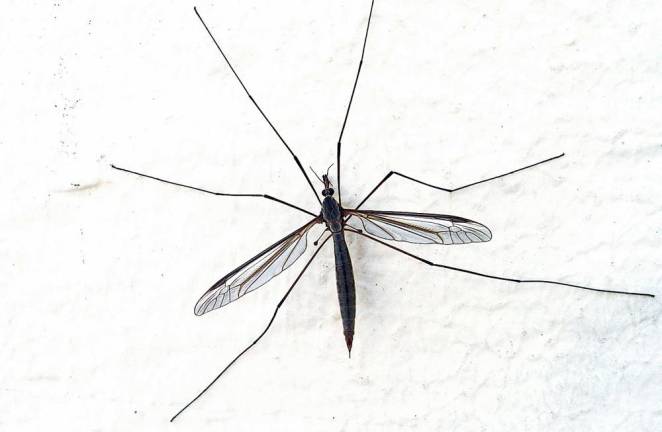New Jersey residents asked to help control mosquito population
Trenton. New Jersey’s mosquito season has started early in recent years and has been exceedingly rainy and hot with warm temperatures extending well into the fall.

As the phased reopening of New Jersey continues amid the COVID-19 pandemic and warming weather, the Department of Environmental Protection reminds the public that controlling the mosquito population is more important than ever, according to Commissioner Catherine R. McCabe.
New Jersey’s mosquito season has started early in recent years and has been exceedingly rainy and hot with warm temperatures extending well into the fall. As a result, surveillance programs during the 2018 and 2019 seasons documented above-average mosquito populations and record-setting levels of West Nile virus and Eastern Equine Encephalitis in mosquitoes.
New Jersey’s mosquito control agencies use a variety of methods to combat mosquitoes, including public awareness campaigns, targeted larval habitat source-reduction programs, use of natural predators such as mosquito-eating fish, and judicious application of EPA- and DEP-approved insecticides by ground and aerial means.
What you can do
Residents can take these steps to protect themselves and their families:
· Use EPA-registered insect repellents when outdoors and wear protective clothing.
· Empty water from flowerpots, pet food and water dishes, birdbaths, swimming pool covers, buckets, barrels and cans at least once or twice a week.
· Clear clogged rain gutters.
· Check for and remove any containers or trash that may be difficult to see, such as under bushes, homes or around building exteriors.
· Dispose of unused tin cans, plastic containers, ceramic pots or similar water-holding containers that have accumulated on your property.
· Drill holes in the bottom and elevate recycling containers left outdoors.
· Repair and clean storm-damaged roof gutters, particularly if leaves from surrounding trees tend to clog drains. Roof gutters can produce millions of mosquitoes each season.
· Turn over plastic wading pools and wheelbarrows when not in use.
· Avoid allowing water to stagnate in bird baths.
· Aerate ornamental pools or stock them with fish. Water gardens become major mosquito producers if they stagnate.
· Clean and chlorinate swimming pools, including those not in use. An untended swimming pool can produce enough mosquitoes to result in neighborhood-wide complaints. Be aware that mosquitos may develop in the water that collects on pool covers.
· Stay in air-conditioned places or rooms with window screens that prevent access by mosquitoes.
· If a mosquito problem remains after taking the above steps, call your county mosquito control agency and ask for assistance. There are larval habitats that only your local mosquito control program can properly address.
Learn more
To learn more about the New Jersey State Mosquito Control Commission and for links to county mosquito agencies visit www.nj.gov/dep/mosquito.